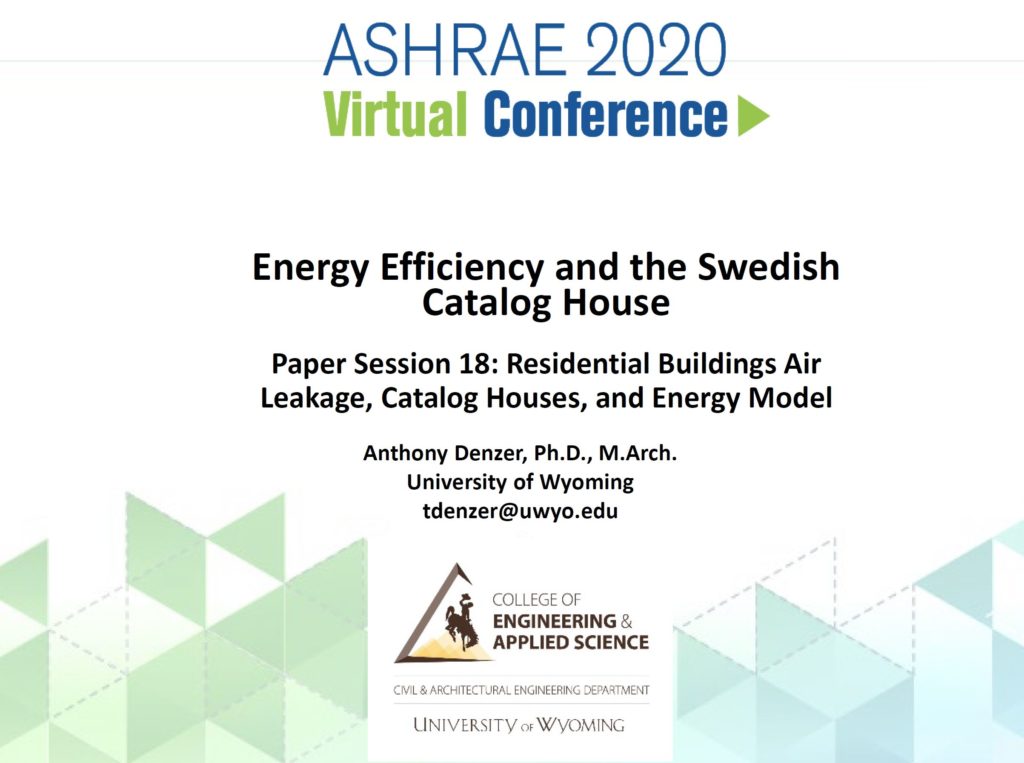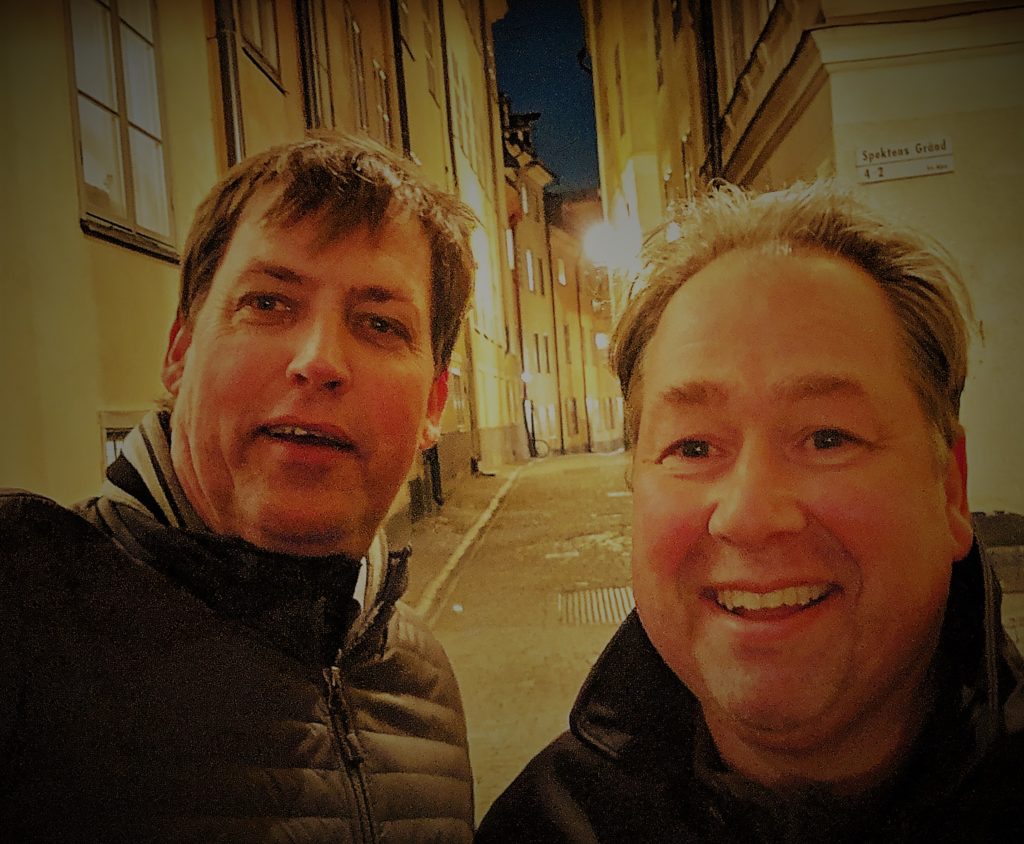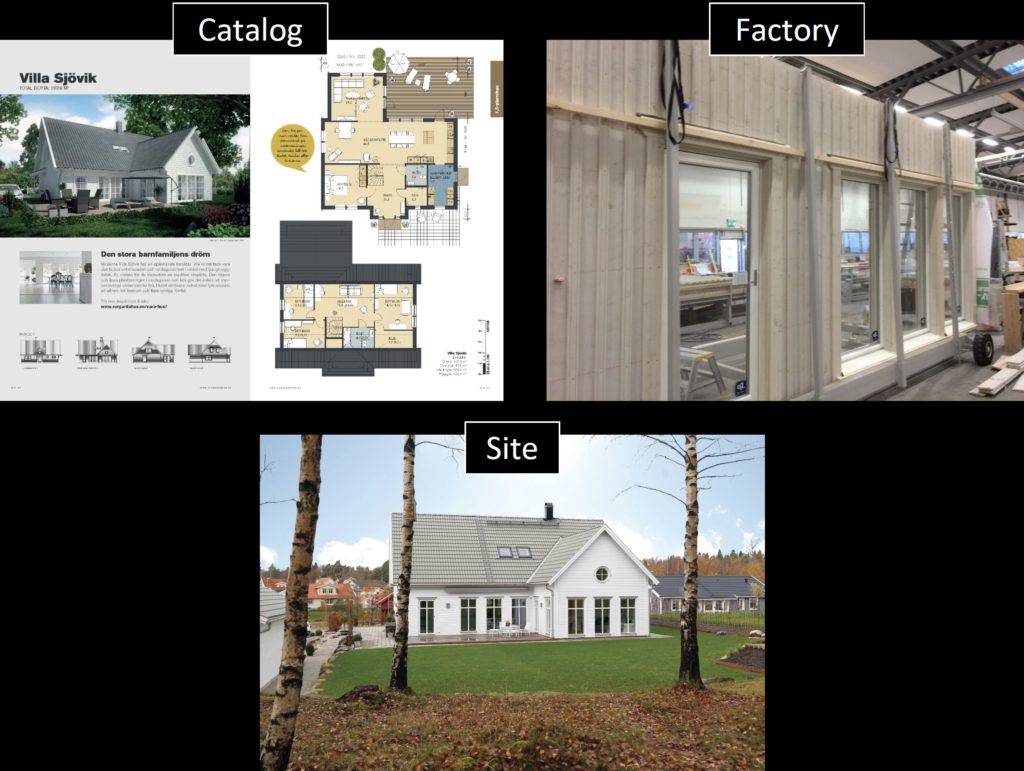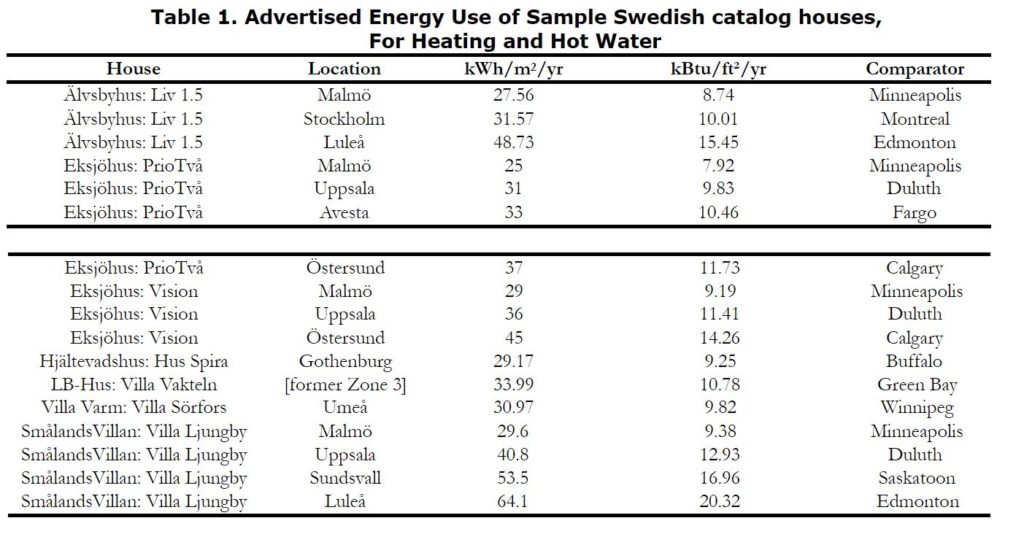Energy Efficiency and the Swedish Catalog House
Tony Denzer, an architectural historian who heads the University of Wyoming’s school of Architectural Engineering, has a new paper and presentation out on the Swedish homebuilding industry.

Tony maintains the blog “Solar House History” which began as a companion site to his fantastic study of the history of solar housing (The Solar House: Pioneering Sustainable Design, Rizzoli 2013) which reconstructs the little-known history of the solar house, with in-depth analyses of all the major solar houses before 1973.

Greg & I met Tony at a conference in 2013 & have since traveled to Sweden several times and have struck up a kind of informal research partnership, as the history of the Swedish homebuilding industry connects to the themes developed in The Solar House, which explores the evolution of the scientific understanding of solar heating, including both passive and active technologies. It also discusses the solar house as a social movement, with many of its leading figures concerned about trends in building energy use and the dependence on fossil fuels in the mid-century period.
Denzer’s book acknowledges, but does not detail the evolution of the scientific understanding of insulation, air sealing and heat recovery – which have been pioneered in the Swedish house & which are the headwaters of the research that led Wolfgang Feist to co-found the Passive House Institute with his former professor, Bo Adamsson, after his degree at Lund University in Sweden.
We are pleased to share Dr. Denzer’s presentation and paper in the links below, which can be viewed in video format with the slides here.
His analysis provides a well documented & scholarly point of reference for builders interested in the innovations found in the Swedish homebuilding industry illustrate the value of continued exploration into the methodological and practical issues of market based solutions for lower energy houses as they have evolved in Sweden.
Thank you Tony for your efforts and allowing us to share this inspiring research. To reach Tony, for further information, or with suggestions and interest, his faculty page is linked here.



 856 662 4909
856 662 4909 

Follow Us!